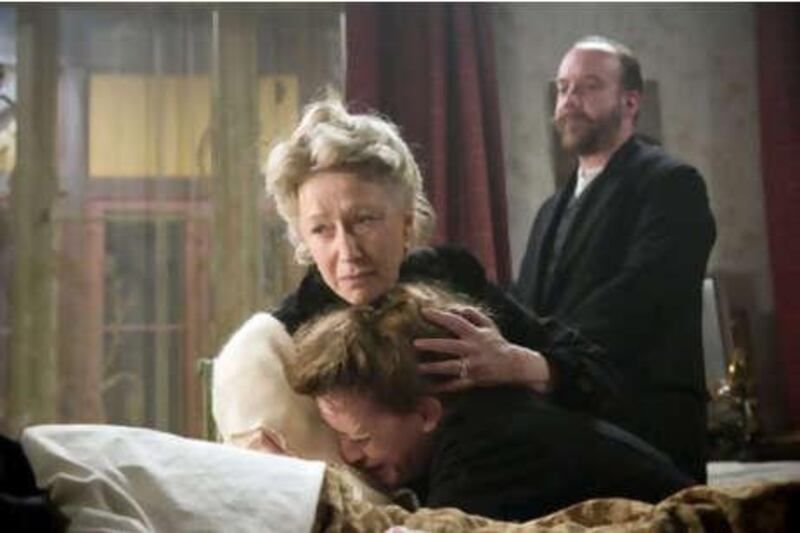A movie about the last days of the Russian writer Leo Tolstoy, The Last Station boasts a fabulous cast and has all the ingredients of a classic period drama, but Michael Hoffman gets the tone completely wrong in what turns out to be little more than a domestic melodrama. Both Christopher Plummer as Leo Tolstoy and Helen Mirren, as his disillusioned wife, were nominated for Oscars for their turns, but that is more a comment on the Academy's fascination with big-name stars overacting than a commendation for their performances. Mirren, in particular, hams it up. Cast as Sofya Tolstoy, she is disillusioned when she believes her husband is going to sign away the rights to his great literary works not to her, nor to their 13 children, but to the Russian people. Tolstoy is under the influence of the scheming administrator Vladimar Chertkov (Paul Giamatti), who runs a utopian group that the vegetarian and pacifist literary great has founded. In his last days Tolstoy sees himself more as spiritual guru than a writer. In a battle of wills between Chertkov and Sofya, Chertkov employs Valentin (James McAvoy) to become Tolstoy's private secretary on the understanding that he'll spy on the married couple. With its lush country house setting and intriguing battle of wills that takes in grandiose ideas about the merit of the individual versus society, it has the feel of a Merchant-Ivory drama, but one that is ruined whenever the actors go on one of their bombastic and grandiose tirades, literally clucking like chickens and breaking plates. None of the characters demands to be cared for and the attempt to evoke this tale through the means of family drama, which is central to great Russian literature from Tolstoy to Chekov, is a huge failure. Instead of finding the nuance of War and Peace it feels as though the director has chosen to hit us over the head with a copy of the weighty tome.
The Last Station
Tolstoy's last days come over as a domestic drama with added rhetorical bombast.

Editor's picks
More from The National





